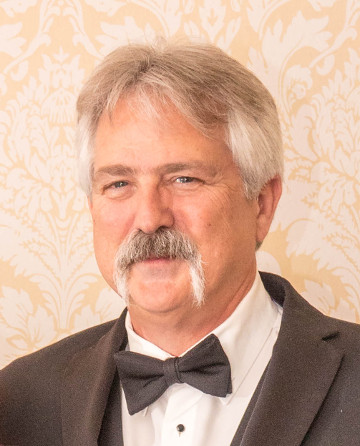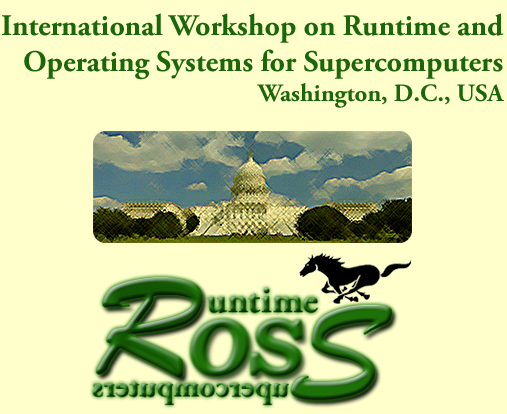Keynote
Speaker:

|
Arthur B. (Barney) MaccabeDirector for the Computer Science and Mathematics DivisionOak Ridge National Laboratory, USA |
Title: Operating and Runtime Systems Challenges for HPC Systems
Abstract:Future HPC systems will be characterized by extreme heterogeneity. We will see increasing heterogeneity in virtually every aspect of node architecture from computational engines to memory systems. We will see increasing heterogeneity in applications, including heterogeneity within applications (as previously independent applications are composed to build new applications). We will see increasing heterogeneity in system usage models; in some cases, the HPC system is not the most precious resource being managed. We will also see increasing heterogeneity in the shared services (e.g., storage and visualization systems) that are connected to HPC systems.
All of this increasing heterogeneity is certain to create new challenges in the design and implementation of operating and runtime systems. There will be new kinds of resources to manage and many resource management tactics will be invented (and some re-discovered and adapted) to address the new heterogeneity. In essence, we will tacitly agree that the operating and runtime systems need to adapt to enable the inevitable integration of new technologies, applications, usage models, and shared services. While this agreement is critical for our ability to make incremental progress, we, as a community, must step back and ask the relevant question: Does the OS or runtime system bear the brunt of the adaptation, or will we be able to insist on changes in the technologies, applications, and environment? In the past decade, we have seen a similar tradeoff play out between the application teams and the architects of computational engines: how much floating point precision is required and how is this precision implemented? How can we define similar tradeoffs that are important in the design and implementation of operating and runtime systems?
Biography:Barney Maccabe currently serves as the Director for the Computer Science and Mathematics Division at Oak Ridge National Laboratory (ORNL). The division has over 100 technical staff working in a wide range of areas, including computational and applied mathematics; discrete systems; data analysis, visualization, management, and engineering; programming models and tools; performance modeling, measurement, and analysis; system software; and emerging technologies. Prior to joining ORNL in January of 2009, Dr. Maccabe served on the Computer Science faculty at the University of New Mexico where he also served as director of the UNM Center for High Performance Computing and the CIO for the university. As a professor, he graduated 11 PhDs and 9 Masters working in the general area of computing systems. Much of his work has focused on the research related to lightweight approaches in HPC systems. Working in collaboration with staff at Sandia National Laboratories, he was involved in the design and development of a series of lightweight operating systems, starting with SUNMOS (Sandia-UNM OS) for the Intel Paragon back in 1990. This collaboration has grown over the years to include a large collection of collaborators with a current emphasis on lightweight virtualization technologies aimed at supporting application composition in HPC system.
Barney earned his BS in Mathematics from the University of Arizona in 1977 and his MS and PhD in Information and Computer Sciences from the Georgia Institute of Technology in 1980 and 1982, respectively.



